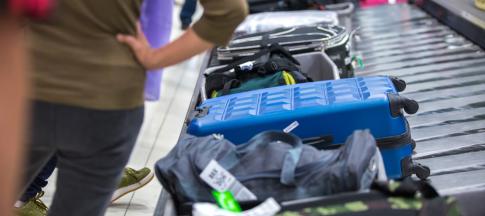
Whether you’re off on a beach holiday or a winter break, you may want to do some water sports, go on a boat trip, or swim in the sea
Whatever you’ve got planned, it’s important to know how to keep yourself safe in the water.
Check out our tips for staying safe while taking part in water sports on your summer or winter holiday.
Staying safe in the sea
Wherever you’re swimming, even if the sea looks calm, it’s important to follow a few rules:
- Read and follow the instructions on any beach safety flags and signs.
- Don’t swim after drinking alcohol or taking drugs.
- Make sure a friend or family member knows where you are.
- Always follow the instructions of lifeguards on the beach.
Rip currents
A rip is a strong current that can quickly pull you out to sea. They can be hard to see but they’ll usually look like a channel of water that’s especially choppy.
A rip current may also look brown or darker than the surrounding water because it’s picked up sand or sediment from the shore.
Lifeguarded beaches will usually have red or yellow flags placed to show where it’s safe to swim and they’ll constantly monitor this area. If you’re caught in a rip, raise your hands and call for help.
You should always swim across a rip current rather than against it. Only swim back to shore when you can no longer feel the current (if you’re able to).
Boat trip safety
When abroad, it’s popular to hire a small private boat for the day, head off on a ‘booze cruise’, or even charter a larger boat with its own captain.
Whether you’re steering the boat yourself or have professionals on hand, there’s still safety measures to follow:
Don’t jump from a moving boat: make sure you’ve stopped before getting into the water.
Stay clear of the engine: the engine or propeller should be turned off if you’ve stopped but don’t swim close to them.
Be aware of seagoing rules and regulations: watch out for buoys and be aware of other boats or people in the water.
Water sports safety
There’s a long list of water sports people often do abroad, including water skiing, surfing, wakeboarding and banana boating.
Here are a few tips on how to stay safe while taking part in water sports:
Research the company who’s running the activity: check customer reviews and make sure they’re a trusted business.
Make sure you’re given a life jacket: check that it looks in good condition and it’s the right fit for you.
Listen carefully to the safety procedures: these instructions are given for a reason, so it’s very important to pay attention to them.
Don’t take part if you’ve drunk alcohol or consumed drugs: alcohol and hard drugs can dull your senses and reaction times, so you should never do water sports with either in your system.
Winter water sports safety
Summer isn’t the only season where people have fun in the water. Many people enjoy the sea in the colder months, whether that’s swimming, surfing or something else.
There are maybe even more risks in the winter including lower water temperatures, ice and harsher weather - so it’s important you know how to stay safe.
Check the weather before entering the water
You should always check the weather forecast before doing any water sports in winter.
While it may look okay before you get in the water, things can change quickly and unexpectedly.
Choose your location wisely
It’s dangerous to choose a water sports location that’s known for harsh weather and currents.
Choose a place that’s known to be safer to lower the chances of something going wrong.
Tell people where you’re going
If you’re going to be doing winter sports alone and without a guide, it’s very important that you tell family or friends where you’re going and when.
If you have an accident or go missing at sea, having loved ones know where you are can increase the chances of you being rescued.
Practice in nicer weather
If you’re relatively new to a water sport, you should get lots of practice in during calm weather before heading out in the colder and stormier winter months.
Pack safety essentials
Safety essentials can make all the difference when doing water sports. These include:
- a first aid kit
- insulating foil
- a tow float
- food and water
Use the right equipment
While you may be excited to head out and start your winter water sports journey, not using the right equipment can be dangerous.
Make sure you research what equipment is needed and practice using it in calm weather.
This includes what kind of wetsuit and protective gear you should wear.
Is it legal to do water sports in winter?
There are no laws stopping you from doing water sports during winter in the UK.
But remember that different countries will have different laws around sea safety and water sports, so do your research beforehand.
Water sports and insurance
Whatever activity you’re doing abroad, it’s important to have some kind of water sports insurance to make sure you’re protected if something does go wrong.
Your travel insurance policy should include a certain amount of cover for accidents or injury. For instance, our policies cover surfing, wakeboarding, banana boating and more as standard.
Your policy book should include a list of everything that’s covered. If an activity you’re interested in isn’t on the list, you’ll need to discuss with your insurer before you take part.
For particularly hazardous activities, you may need to pay an extra premium to cover yourself for it. Some activities might not be covered at all.
Whatever you’re doing, insurers won’t cover you if you’re injured because of reckless behaviour.
This includes being under the influence of drugs or alcohol or not following the safety procedures.


